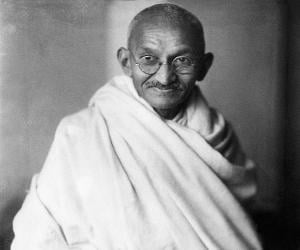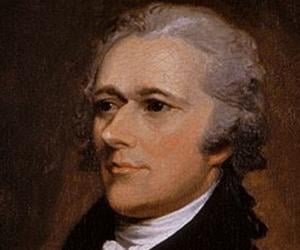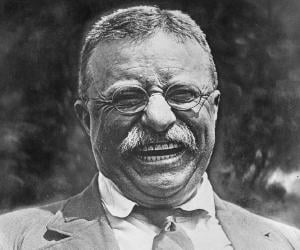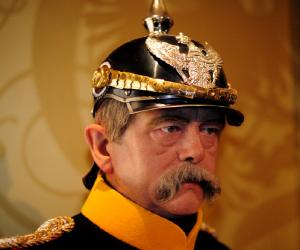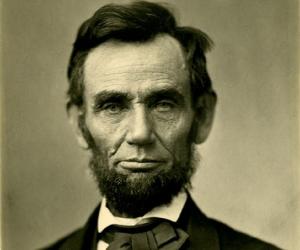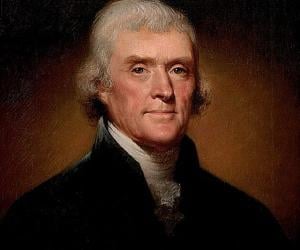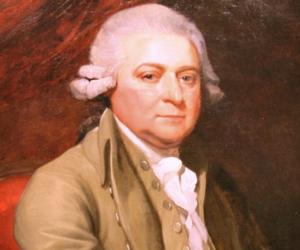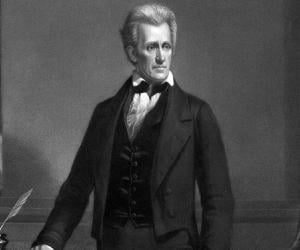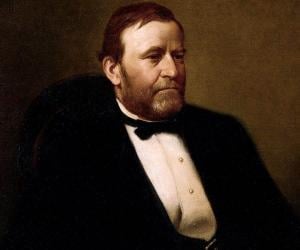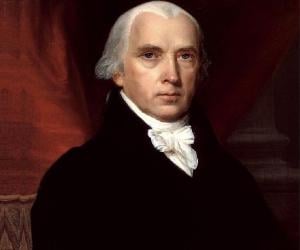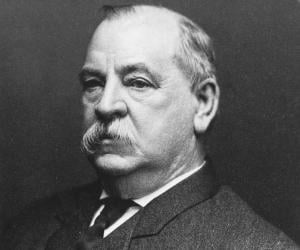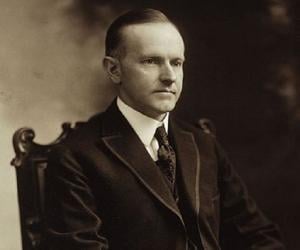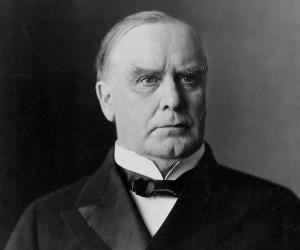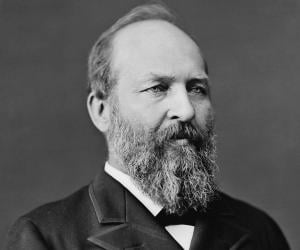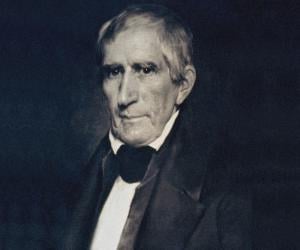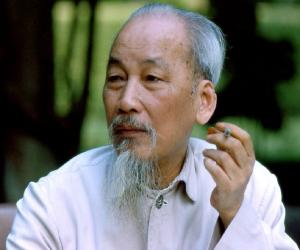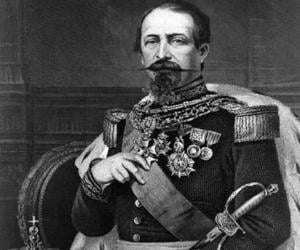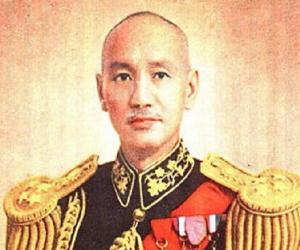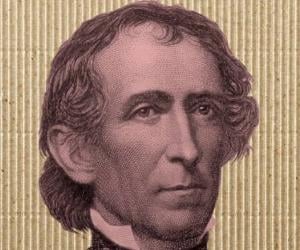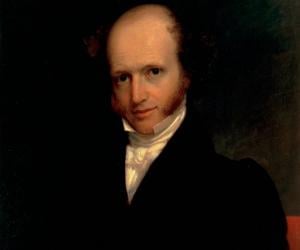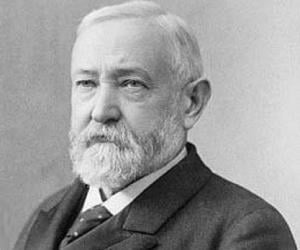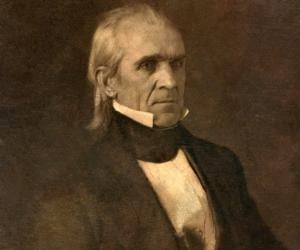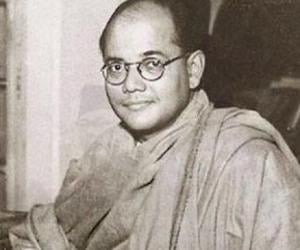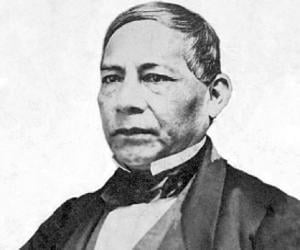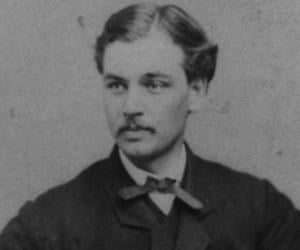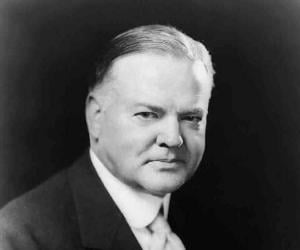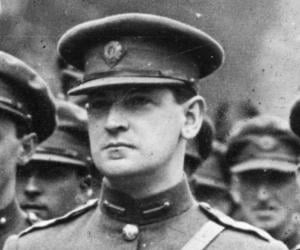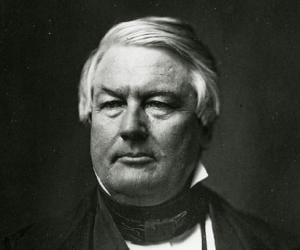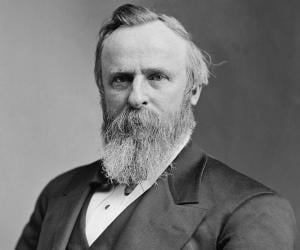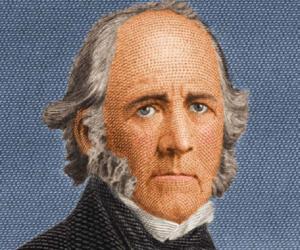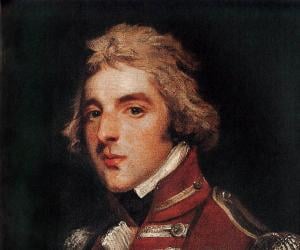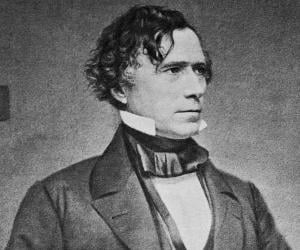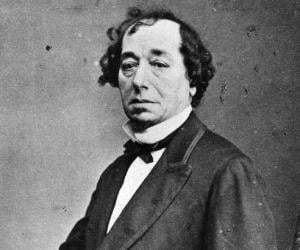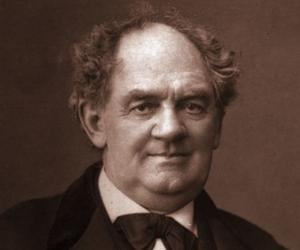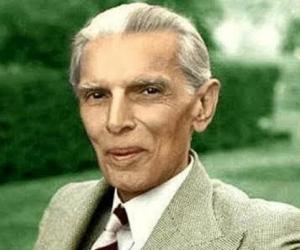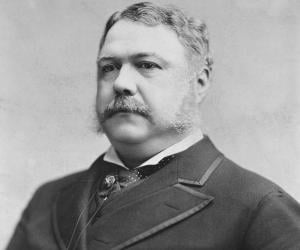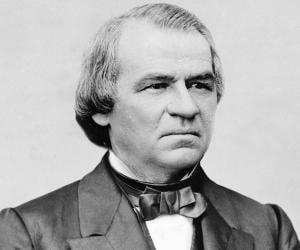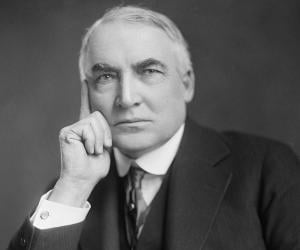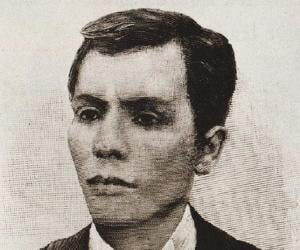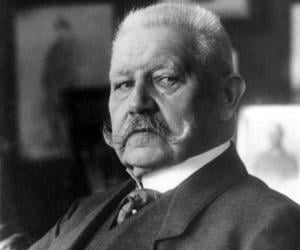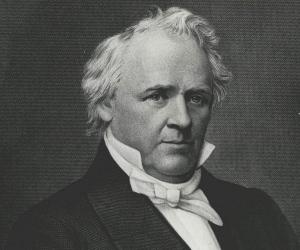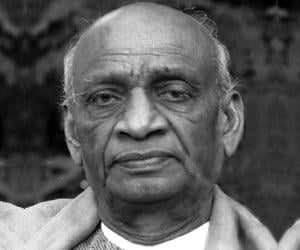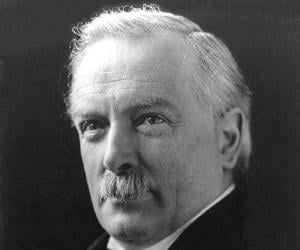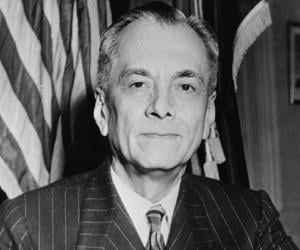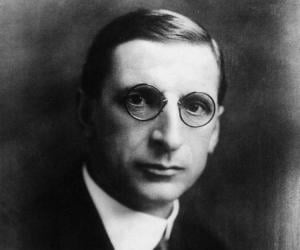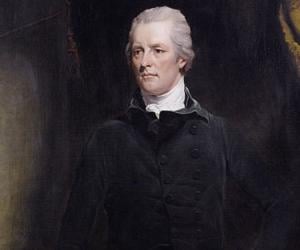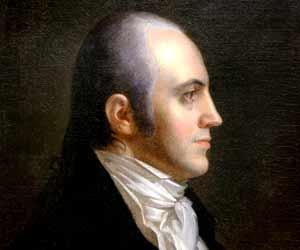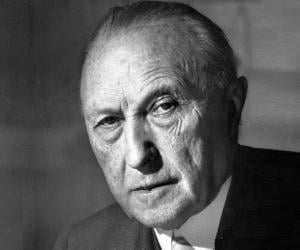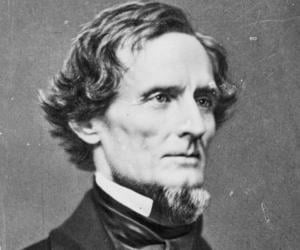An Indian lawyer and anti-colonial nationalist, Mahatma Gandhi was a major figure in India’s fight for independence from British rule. He is renowned for his employment of non-violent resistance and civil disobedience methods. Despite his popularity, he had numerous detractors as well and was assassinated in 1948. He is widely considered the Father of the Nation in India.
Known as America’s one of the most influential Founding Fathers, Alexander Hamilton was a delegate to the Constitutional Convention and served as the first secretary of the treasury. He also fought in the American Revolutionary War and was considered as a leading votary of the strong central government.
The 26th president of the United States, Theodore Roosevelt is generally ranked as one of the five best presidents of the country. A man of many talents, he was a politician, conservationist, naturalist, and writer. He supported Progressive Era policies in the early 20th century and championed his "Square Deal" domestic policies.
A self-educated lawyer, Abraham Lincoln rose from modest background to become one of the greatest presidents of America. The 16th president of the country, who is also known as Honest Abe and the Great Emancipator, played a crucial role in establishing a truly democratic government, abolished slavery, modernised economy and led the country during the American Civil War.
The 2nd Vice President and the 3rd President of America, Thomas Jefferson was one of the Founding Fathers of USA and the principal draftsman of the Declaration of Independence. Jefferson was a staunch advocate of democracy and a strong believer of individual rights and religious freedom, despite the fact that he himself owned nearly 600 slaves.
One of the Founding Fathers of America, John Adams was a statesman, attorney, and diplomat who served as the second president of the United States. He was a principal leader of the American Revolution. As a lawyer, he was devoted to the right to counsel and presumption of innocence. His administration has been favorably ranked by historians and scholars.
Andrew Jackson was the 7th President of USA. His presidential reign has been termed as Jacksonian democracy and witnessed the shift of political power from established elites to ordinary voters. Coming from humble beginnings, Jackson knew the struggle of the masses and thus, worked towards creating a more inclusive country. His picture has been featured on the front side of $20 bill since 1928.
The 18th president of the United States, Ulysses S. Grant held office from 1869 to 1877. He led the Union Army as Commanding General of the United States Army during the American Civil War and was a war hero. As president, he stabilized the post-war national economy and created the Department of Justice. Historians generally recognize his presidential accomplishments.
James Madison played an important role in drafting the US Constitution and the US Bill of Rights and is hailed as the Father of the Constitution. He also co-wrote The Federalist Papers, considered to be a seminal work of political science. As president, he led the country into the 1812 war and historians place him as an above-average president.
Grover Cleveland, a Democratic Party member, was the President of the United States from 1885 to 1889 and then again from 1893 to 1897. He is known for his campaign for political reform and fiscal conservatism. However, he was unable to deal with the economic depression in his second term as President, which led to massive decline in his popularity.
The 30th president of the United States, Calvin Coolidge started his career as a lawyer before becoming an influential American politician. A man of few words with a dry sense of humor, Calvin Coolidge represented the middle class, which worked in his favor. Despite being a reclusive politician, Coolidge gave 520 press conferences, making himself available to reporters quite often.
The 25th President of the United States, William McKinley led America to victory in the Spanish-American War. During his presidency, he played a major role in promoting American industry by raising protective tariffs, which in turn boosted the country's economic growth. He also played a key role in the American Civil War.
The 20th president of the United States, James A. Garfield began his career as an attorney. Born into poverty, he struggled throughout his childhood and youth to become a respected lawyer. He eventually entered politics and rose through the ranks to be elected the president. Unfortunately, he was assassinated less than seven months after he took office.
The ninth president of the US, William Henry Harrison died 31 days into his presidential term, becoming the shortest-serving US president ever. His demise caused a brief constitutional crisis pertaining to the succession to the presidency. Subsequently, Vice President John Tyler became the new president, setting an important precedent in terms of transfer of the presidency in such situations.
Chiang Kai-shek was a Chinese revolutionary who led the Republic of China between 1928 and 1975, first in mainland China until 1949 and later on in Taiwan until his death. He is credited with successfully leading the Northern Expedition against the Beiyang government, achieving Chinese unification. He was involved in a civil war with Communist Party of China, which he lost in 1949 and retreated to Taiwan.
The tenth president of the United States, John Tyler was dubbed His Accidency as he became the president after the sudden death of President William Henry Harrison when the former was serving as the vice president. Tyler's acceptance of full presidential powers set a prominent precedent and served as a model for succession to the future presidents.
Martin Van Buren was an American statesman credited with co-founding the Democratic Party, one of the world's oldest and contemporary political parties. He served as the eighth president of the US and later became a prominent anti-slavery abolitionist leader. He also played a key role in forming the two-party system in the US.
Benjamin Harrison was the 23rd U.S. President and is remembered for his efforts to pass the McKinley Tariff and the Sherman Antitrust Act. A qualified lawyer, he was the great-grandson of Benjamin Harrison V. Known for strengthening the Navy, he also attempted to secure the voting rights of African–Americans.
The 11th president of the United States, James K. Polk was an advocate of Jacksonian democracy. He is credited with extending the territory of the US during the Mexican–American War. During his presidency, the US annexed the Mexican Cession, the Oregon Territory, and the Republic of Texas.
An Indian nationalist known for his role in the country’s struggle for freedom from the British, Subhas Chandra Bose was a politician with radical views. He was part of the Indian National Congress in the late 1920s and 1930s. However, his association with Nazi Germany and Imperial Japan made him a controversial figure.
Benito Juarez was a Mexican lawyer and politician. He served as the 26th president of Mexico from 1858 to 1872, becoming the first president of Mexico who was of indigenous origin. He died of a heart attack in 1872. To date, he is revered as "a preeminent symbol of Mexican nationalism and resistance to foreign intervention."
Lawyer Robert Todd Lincoln, son of Abraham Lincoln, served as the U.S. Secretary of War from 1881 to 1885 and as the U.S. minister to the U.K. from 1889 to 1893. He had served in the Civil War, too, and had also been the president of the Pullman Car Company.
The 31st president of the United States, Herbert Hoover, was sworn into the office in 1929, the year the Great Depression struck the American economy. Earlier, Hoover was a successful mining engineer and had earned a reputation of a humanitarian who fed numerous Europeans during and after WWI. His policies during the depression, though, could not provide relief to people.
Franklin Pierce was an American politician who served as the 14th president of the US. A northern Democrat, Franklin Pierce's actions leading up to the American Civil War are believed to have contributed to the commencement of the war. Scholars and historians rank Pierce as one of the least memorable and worst US presidents.
Benjamin Disraeli was a British politician who served two terms as prime minister of the UK. Disraeli is credited with playing a key role in the formation of the modern Conservative Party. Apart from being an influential politician, Benjamin Disraeli was also a prolific novelist; he wrote and published works of fiction even while serving as the prime minister.
P. T. Barnum was an American politician, showman, and businessman. He is credited with founding the famous Barnum & Bailey Circus, which ran for 146 years. He is also credited with co-founding the Bridgeport & Port Jefferson Steamboat Company, which is one of the oldest American ferry companies. His life and work have inspired many films, including The Greatest Showman.
The 17th president of the United States, Andrew Johnson assumed the presidency while serving as the vice president when Abraham Lincoln was assassinated. Born in poverty, Andrew Johnson did not attend school. However, he worked his way up to become a prominent politician—an inspiring story indeed!
The 29th President of the United States, Warren G. Harding assumed office in 1921 shortly after the end of WWI and became very popular. He died in 1923 while still in office. Later, various scandals that occured during his presidency were uncovered and his image suffered a serious setback. His presidency is today ranked amongst the worst in the American history.
James Buchanan was a prominent American lawyer who served as the 15th president of the United States. He is often criticized for failing to address the issue of slavery and is consistently ranked among America's worst presidents. His life and work inspired the 2019 film Raising Buchanan in which he was played by René Auberjonois.
Sardar Vallabhbhai Patel was an Indian politician who played an influential role in the Indian independence movement. Dubbed the Iron Man of India and Unifier of India, Sardar Patel played an important role in integrating various princely states into a united, independent nation. In 2018, the world's tallest statue called the Statue of Unity was dedicated to Sardar Vallabhbhai Patel.
Filipino statesman Manuel L. Quezon, or MLQ, was the president of the Commonwealth of the Philippines from 1935 to 1944, thus becoming the first Filipino to lead a government of the whole of the Philippines. He formed a government-in-exile in the U.S. after the Japanese invasion during World War II.
Irish statesman Éamon de Valera served as the 3rd President of Ireland from 1959 to 1973. An influential political leader in 20th-century Ireland, he played a key role in introducing the Constitution of Ireland. Prior to becoming the president, he served as Taoiseach on three different occasions. He was an austere, stern, and unbending figure.
British statesman, William Pitt the Younger, became the youngest prime minister of Great Britain in 1783 when he was just 24. During his stint as the prime minister, he was also Chancellor of the Exchequer. Several major political events, including the French Revolution and the Napoleonic Wars, happened during his tenure. He is ranked highly among all British Prime Ministers.
A soldier, lawyer and one of the founding Fathers of America, Aaron Burr rose to become the third Vice president of the United States. His turbulent political career, which included bitter rivalry with Alexander Hamilton, concluded when he mortally wounded Hamilton in a duel and was later charged with treason.
German politician, Konrad Adenauer, served as the first Chancellor of the Federal Republic of Germany from 1949 to 1963. He was also the co-founder and the first leader of the Christian Democratic Union (CDU). He played a key role in leading his country from the ruins of World War II to becoming a prosperous nation.
Jefferson Davis was the president of the Confederate States of America from 1861 to 1865. He was also the U.S. secretary of war and had fought in the Mexican–American War earlier. He was against secession. He wrote an autobiography named The Rise and Fall of the Confederate Government.
